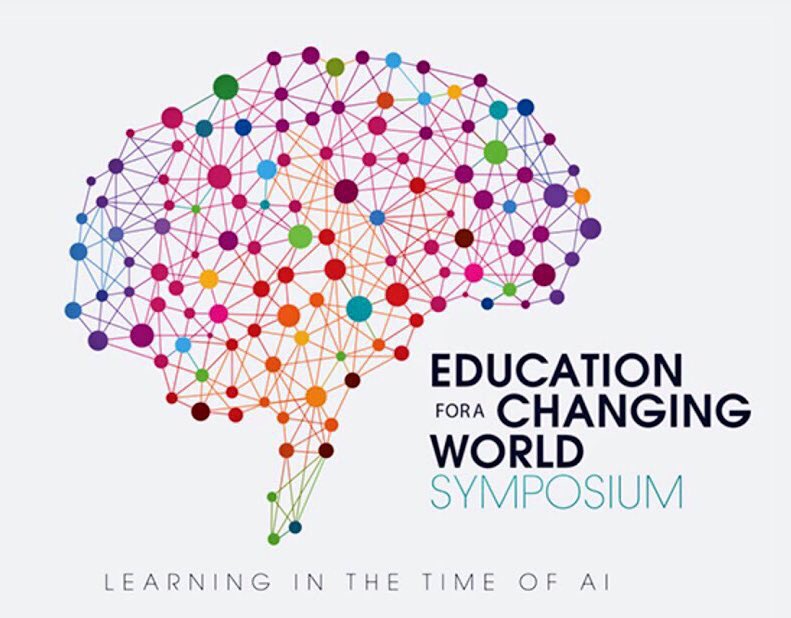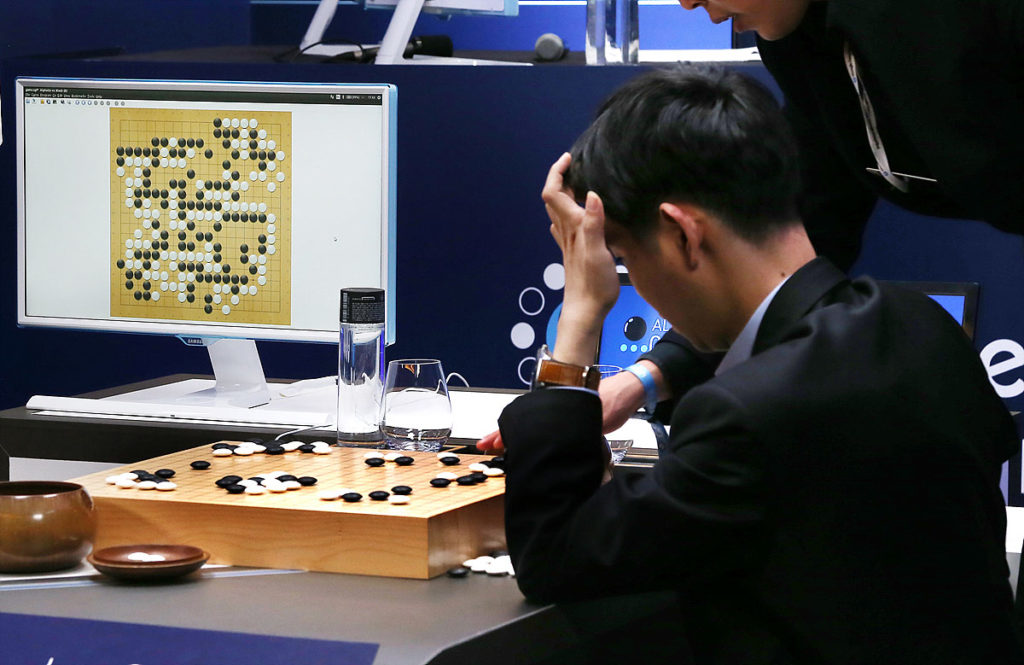 It was March of 2016 and the computer program AlphaGo had just defeated one of the world’s best human Go players four games to one in a five-game series. What was striking, according to Leslie Loble, Deputy Secretary of Education for External Affairs and Regulation in New South Wales, Australia, was not that the computer had won; computers had already beaten chess grandmasters, it seemed likely to happen in the even more complex game of Go at some point. Rather, the most surprising aspect of AlphaGo’s performance was its use of moves unforeseen by its human competitor.
It was March of 2016 and the computer program AlphaGo had just defeated one of the world’s best human Go players four games to one in a five-game series. What was striking, according to Leslie Loble, Deputy Secretary of Education for External Affairs and Regulation in New South Wales, Australia, was not that the computer had won; computers had already beaten chess grandmasters, it seemed likely to happen in the even more complex game of Go at some point. Rather, the most surprising aspect of AlphaGo’s performance was its use of moves unforeseen by its human competitor.
“The big shift,” said Loble, in a recent interview, “was we’re now in a world where we have a technology that teaches itself, that works on probabilities. This was a computer teaching itself, a computer that did not have the answers programmed into it and a computer that came up with what were called ‘innovative’ moves in a game that has more moves than there are atoms in the universe.”
While discussion around the future impact of artificial intelligence (AI) has long occupied researchers and policymakers, the AlphaGo victory, according to Loble, validated the view from her department’s perspective that the impact of AI was no longer a discussion about the future, it was an issue of immediate concern.
The computer program AlphaGo defeated one of the world’s best human Go players.
“There were two big drivers indicating that we needed to do something,” said Loble. “One, that the old paradigm that had shaped education policy for a very long time was probably no longer as valid; that only lower-level skills and repeatable tasks will be replaced by computers and therefore we solely need to move our population up the skill levels. AI is attacking professions and highly educated professionals will find their tasks, even their jobs affected by AI, not just lower skilled workers.”
“And the second thing that hit us was a tremendous sense of urgency that the child who started school this year will leave high school in 2030 and will live the rest of their lives across the 21st century and some may live into the 22nd century. And the world will look very different at 2030, but what the world will look like beyond that really made us feel that we needed to move urgently,” Loble added.
Loble and her colleagues at the New South Wales Department of Education knew that a phenomenon as potentially far-reaching as the expansion of AI—often called the Fourth Industrial Revolution, a transformation on par with the Industrial Revolution of the 19th century—required a broad and deep public dialogue about the future of work, education and life.
To start that conversation, under the banner of a new project, “Education for a Changing World”, the department commissioned an initial series of papers by leading thinkers including NCEE president Marc Tucker, Toby Walsh, an internationally recognized AI expert, Peter Ellerton, a critical thinking expert from the University of Queensland, and Richard Watson, a renowned futurist from the United Kingdom. The authors were given no specific mandate beyond, “tell us what you think we should do,” according to Loble.
 “There have been swirling conversations in Australia, and around the world, about 21st century learning and its sort of like a Rorschach test: everybody sees certain things in it,” said Loble. “There are a lot of slogans and labels out there and we decided this deserves a much deeper discussion and in fact a more open conversation. We wanted new voices and a range of expertise. We knew we wanted debate and we knew we wanted to get past the slogans, to push our colleagues and ourselves to think more.”
“There have been swirling conversations in Australia, and around the world, about 21st century learning and its sort of like a Rorschach test: everybody sees certain things in it,” said Loble. “There are a lot of slogans and labels out there and we decided this deserves a much deeper discussion and in fact a more open conversation. We wanted new voices and a range of expertise. We knew we wanted debate and we knew we wanted to get past the slogans, to push our colleagues and ourselves to think more.”
The series of papers was so well received, that the department partnered with Melbourne University Press to compile them as an ebook, Future Frontiers: Education for an AI World, that “considers the impact of AI and what skills students will need to learn.”
Building on these publications, the department hosted a series of events to engage educators, students, the business community and higher education officials, the culmination of which was the “Education for a Changing World Symposium”, a two-day conference featuring panels and speeches by Australian and international leaders and researchers.
Some 300 people, including key influencers and advocates, attended, the Australian press covered it extensively, and Loble said the reaction from attendees—from young teachers to CEOs of major organizations—was uniformly effusive.
“What came out of the symposium was a lot of enthusiasm, particularly from the younger school leaders and teachers,” said Loble. “Technology has affected their lives. They’ve seen that it can mean opportunities, not just risks. They’re already trying a lot of different approaches and many of them very energetically. Essentially, what we’ve discovered and what we want to build is a ‘crowd’ that we can source ideas from and very much involve in the process of not only figuring this out, but driving it through at the same time.”
To nurture these ideas, the department will establish a seed fund to invest in promising and innovative programs with evidence of success. A goal of the fund, according to Loble, is for the department to break from the typical “pilot, evaluate and then tell everyone this is what you have to do” framework that is endemic to education policy. Instead, the department aims to shift not just the thinking around these issues, but operationalize that new and more nimble thinking to change how the department does its work.
Loble said that the focus of the department’s efforts and investments will not be limited to simply developing strategies to more comprehensively imbue the state’s curricula with so-called 21st century skills.
“One of the things that came through the papers was that we needed to shift our thinking to emphasize ethical frameworks and citizenship,” said Loble. “Not only around AI, but plenty of other complex problems like globalization, global movements of people, climate change; a whole set of issues that are increasingly complex and that are very, very important to think about when it comes to our young people emerging from schooling able to effectively deal with those issues.”
And, wherever the discussion and the investments lead across these issues, Loble says a critical aspect of the project going forward for the department itself will be to internalize the lessons from the effort into its work.
“We’re really trying to discipline ourselves to not fall back on the traditional, top-down approach, which is easily done in a large system that is quite well organized,” Loble added. “We’ll do much better if we both learn and apply at the same time. So, in a sense, let’s model the 21st century learning that we hope to develop.”


